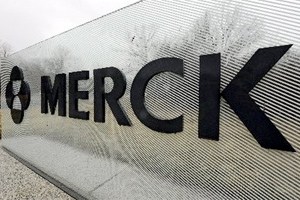 Merck & Co joined its peer Pfizer in cutting its financial guidance for 2013 after reporting lower-than-expected first quarter revenues.
Merck & Co joined its peer Pfizer in cutting its financial guidance for 2013 after reporting lower-than-expected first quarter revenues.
Sales fell 9 per cent to $10.7bn in the quarter, largely thanks to a dramatic drop-off for asthma blockbuster Singulair (montelukast), which was down 75 per cent year-on-year to $337m as generic competition hit in the US and Europe.
More worryingly, Merck’s Januvia (sitagliptin) product franchise failed to live up to expectations, with sales down 4 per cent to $884m mainly resulting from lower turnover in the US, according to chief executive Kenneth Frazier.
“Our results for the first quarter underscore the challenges of managing through a major patent expiration and the impact of headwinds which were even tougher than we had anticipated,” he said on a conference call, while insisting that growth opportunities for Januvia remain strong despite increasing competition in the marketplace and pricing pressure.
On the plus side, HIV drug Isentress (raltegravir) gained 8 per cent to $360m and cervical cancer vaccine Gardasil added 30 per cent to reach $390m.
There was also good news from the company’s arthritis therapies Remicade (infliximab) and Simponi (golimumab), which grew 10 per cent collectively, with Remicade up 6 per cent to $549m and Simponi breaking the $100m barrier for the first time.
During the quarter Merck’s net income largely held up – at $1.6bn versus $1.7bn year ago – but the result was flattered by charges totalling some $1.6bn in the same period of 2012.
All told, the figures prompted the company to issue new revenue forecasts that would see it come in at 3-4 per cent below 2012 levels rather than the previously anticipated flat year-on-year performance. The revised figures would put earnings per share in the £3.45-$3.55 range compared to its previous estimate of $3.60-$3.70.
Also in line with Pfizer, Merck has announced a major $15bn share repurchase programme to stabilise its stock and placate investors who have started to grumble about R&D productivity and commercial performance. Around $7.5bn of the buyback will take place in the next 12 months, said Frazier.
The first-quarter call also featured new R&D chief Roger Perlmutter, who officially took over from Peter Kim on April 15 in the wake of some high-profile pipeline disappointments including the failure of cholesterol drug Tredaptive (extended-release niacin/laropiprant).
Perlmutter highlighted the potential of Merck’s near-term pipeline – including insomnia drug suvorexant and neuromuscular blocker sugammadex – as well as key pipeline assets such as cancer antibody lambrolizumab (MK-3475) which was recently awarded breakthrough status by the US FDA, and the recent alliance with Pfizer on diabetes candidate ertugliflozin.
Perlmutter would not be drawn yet on the details of a promised revamp of Merck’s R&D operations, which comes at a time when some investors have been calling for a reduction in spending to bring the company closer in line with its peers in big pharma – and, importantly, for it to also make more efficient use of resources.
“I am doing a very detailed review of programmes, of process and people and already two weeks in, I can say there is some opportunities for acceleration and for productivity enhancement,” he said. Meantime, however, Merck’s R&D spend looks set to increase in 2013 over 2012.




